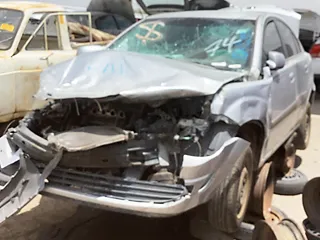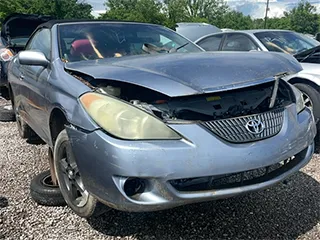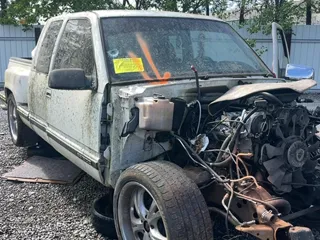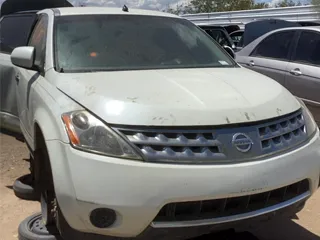Want to Sell Your Salvage Car in Denver? Learn How
Selling a salvage car in Denver is as simple as picking up the phone and calling your nearest Colorado U-Pull-&-Pay location. We don't care if your car is missing a few parts, is banged up from one end to the other, or can't make it down the road without puffing up clouds of smoke. We'll haul away your clunker, and we want to pay up to $900 in cash for it today. Call (866) 865-4929 For a Free Quote
Here's what typically happens when you sell your salvage car for cash in Denver. First, call your local U-Pull-&-Pay salvage yard! We'll ask you about the vehicle's make, model, and condition. That's okay if nothing but the radio works, or it’s ugly to look at. Scrap cars usually aren't road-worthy to begin with. Some are ancient and rusted out. Others are what an insurance company calls a "total loss." No matter what's wrong with your unwanted car, we'll pay you up to $900 cash for it. (The only vehicles we have to pass on are fire and water-damaged cars.)
Step two: where is your junker parked? We'll send out a tow truck to come get your salvage car and you don't have to pay a dime. With your go-ahead, we'll put up to $900 cash in your hand and drive off with your salvage car. How is it that we can pay so much for salvage cars in Denver? Scrap cars are worth the value of their metal and parts. It's easy for us to pay more than other Denver salvage yards because we put your salvage car to actual use. As soon as it hits the ground at our Denver salvage yard, your unwanted car transforms into valuable SUV, truck, or car parts for people who need used auto parts for DIY auto repairs. Your car helps other cars stay on the road longer! All that goodness comes right back to you in the form of dollar bills.
Am I Better Off Fixing My Salvage Car in Denver, CO?
It's your decision to keep and fix your beat up car, or sell it to U-Pull-&-Pay in Denver. But here's some food for thought. Salvage vehicles are usually unrepairable. They aren't totally impossible to fix, but they require some serious elbow grease and a big investment to be safe and driveable again. Salvage cars have been demolished in a car accident, always need new parts, or need the engine rebuilt. Expensive engine issues, mechanical troubles, and extreme body damage are all frequent reasons to sell your salvage vehicle to U-Pull-&-Pay for cash. And all of those auto repairs can add up. Very few people have that kind of cash sitting around to fix up a damaged car! Why would you want to repair your salvage car if you can make money instead?
Where Can I Sell a Car for Salvage Near Me in Denver?
Your local U-Pull-&-Pay in Denver is a nearby salvage yard that buys cars that work, don't work, or never will work. Call us ASAP for a fast no-obligation offer, free towing, and fast cash payment! We do our best to make the salvage car sale process in Denver an easy one, so you can fill your wallet with cash, without the hassle. Sell your salvage truck or car for money now!






